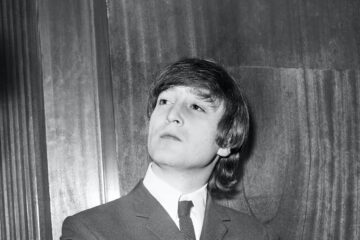For more than 50 years, The Beatles’ album Sgt. Pepper’s Lonely Hearts Club Band has been regarded as the pinnacle of popular music, a benchmark for all other albums to aspire to. It encapsulated the previous five decades of culture, reframing it through a vibrant, carnival-like perspective, and ultimately produced what many consider the greatest album of all time.
…so said the critics, so said the writers, so said the public, and so it became. But as the tides of popular culture keep turning, Sgt. Pepper continues to fall out of favour with some. Not out of the canon, per se, but it has been steadily tumbling from its place as the undisputed top of the musical mountain. It is becoming increasingly rare to find those who might consider it the greatest album of all time, or even the greatest Beatles album, or occasionally even the greatest album of 1967, with the Velvet Underground, Love, and even The Beatles themselves all offering stiff and ever-stiffening competition.
Sgt. Pepper is still, for the record, a tremendous album. But it’s a tremendous Paul McCartney album. The man who spearheaded the LP’s creation and concept had the most to say in its contents, while the rest of his bandmates decided to go along for the wild ride.
John Lennon was inspired enough to create transcendent pieces like ‘Lucy in the Sky with Diamonds’, but found the overall work to be fairly tepid and has diminished his own contributions like ‘Good Morning Good Morning’. Ringo Starr was so bored during recordings that he learned to play chess in the studio. But perhaps the least taken with Sgt. Pepper, as a whole, was George Harrison.
Many factors lead to Harrison’s discontent with the album, which varied from personal problems to musical differences to lack of communication. Harrison famously only has a single song on the record, the classical Indian-infused ‘Within You Without You’, but after notching three originals on the band’s previous record, Revolver, it was an obvious step down for the guitarist, just as he was finally stepping up.
It wasn’t intended that way: the first song that Harrison brought to the Sgt. Pepper sessions was ‘Only a Northern Song’, a tune that would later find its way onto the Yellow Submarine soundtrack. The song details Harrison’s dissatisfaction with his unequal songwriting contribution within The Beatles camp and how he was getting the short end of the stick, especially regarding royalties.
Despite its psychedelic sound, the other Beatles were put off by the song’s lyrical implications and more nebulous musical composition, and they declined to include it on the album. But above all, the band didn’t really seem to even give it enough time to truly realise it was a jab at them. As both Lennon and McCartney would later admit, humbled by his subsequent efforts, at this stage, they simply didn’t think he was much of a songwriter, and subsumed by their own artistic streak, they barely borrowed their ears to what he brought to the table.
At the same time, Harrison was a more mature figure by the time the band assembled for Sgt. Pepper. More confident in his abilities, he created a new dynamic that the other Beatles found a challenging adjustment. Additionally, his experiences in India created a new mindset that alienated him from the rote band atmosphere of the past. “After [the India trip], everything else seemed like hard work,” Harrison said in The Beatles Anthology. “It was a job, like doing something I didn’t really want to do, and I was losing interest in being ‘fab’ at that point.”
The parts of performing and recording that he did enjoy, namely recording live with his bandmates, were also eradicated during the making of the album. “Sgt Pepper was the one album where things were done slightly differently,” he continues. “A lot of the time … we weren’t allowed to play as a band so much. It became an assembly process – just little parts and then overdubbing.”
As such, with a new focus on spirituality, exotic instrumentation, a burgeoning desire to let his own bird fly in a more freeing manner, and a slight separation between himself and his fellow band members, Harrison focused on a new composition, ‘Within You Without You’.
Created without the written or recorded input of any of the other Beatles, ‘Within You Without You’ took the traditional Indian music idiom, which he had experimented with in ‘Norwegian Wood‘ and ‘Love You To’, and expanded it to an entire composition. Far more existential and positive than the bitter and vitriolic ‘Only a Northern Song’, ‘Within You Without You’ was accepted as Harrison’s sole contribution to Sgt. Pepper’s writing credits.
According to McCartney, it might have been Harrison’s sole impactful contribution to the album, period. “George wasn’t very involved in that album,” McCartney would say later. “He just had one song. It’s really the only time during the whole album, the main time, I remember him turning up.”
Harrison’s view on Sgt. Pepper’s remained muted during his lifetime. With additional albums came additional opportunities to contribute to songwriting, and the importance of the record once dubbed a masterpiece diminished from the forefront of his thinking.
By the time the band were involved in their final sessions for the Abbey Road album, Harrison had provided songs widely regarded as being among the best in the Beatle oeuvre: ‘Something’ and ‘Here Comes the Sun’, to name but two. But the toil and sidelining of his contributions during the recording of Sgt. Pepper left a lasting impact on Harrison’s relations within the group. It’s no wonder he finds the album to be “a bit tiring and a bit boring”. Increasingly, he’s not alone.



